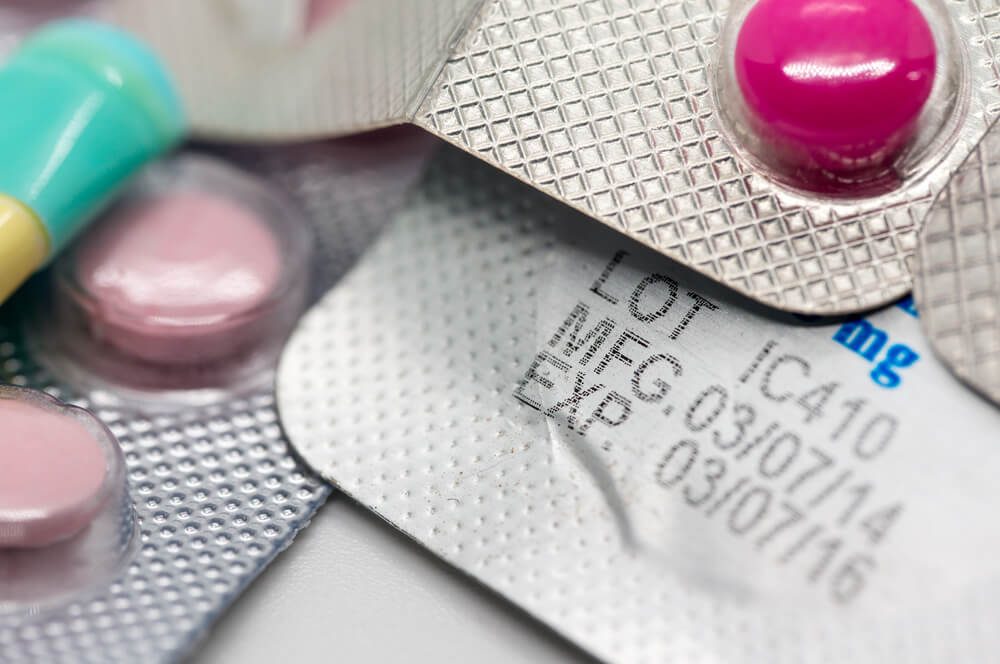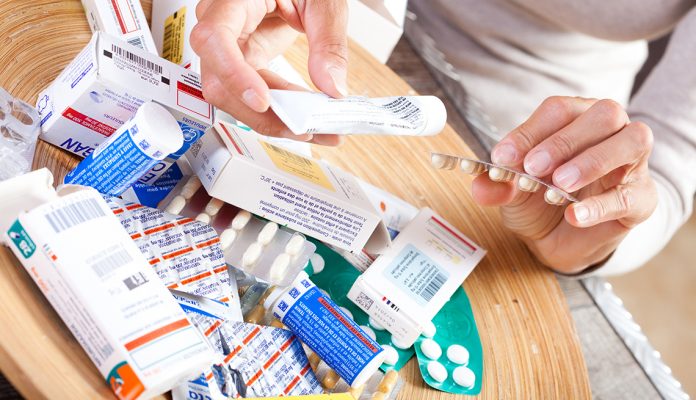Note from the Editor: This article is intended solely for information. We do not promote the use of drugs outside their formal license and are not responsible for the consequences.
By law, an expiration date (or expiry date) should be printed on the packaging of all perishable products indicating the date on which the manufacturer ensures that the medication is “safe and effective.” The effect is that after that date we should discard medicines.
However, in 1986, with the collaboration of the Food and Drug Administration (FDA), the US Government set up a Shelf Life Extension Program (SLEP) to research and increase the shelf-life of commonly military stockpiled drugs. Many have long since been licensed, and their shelf life has been extended for military and emergencies which are both safe and effective.
So what does this mean when the drugs in your cabinet come to an expiration date?
How Are Expiration Dates Calculated?
In proposing an FDA-licensing drug, a manufacturer must prove that the product is stable, safe and effective during a specific time period after production. After licensing of the drug, the expiration date of all batches of that drug will have an assigned date of production and approved shelf-life.
During product testing for shelf life, numerous manufacturers opt for a two or three years period. The immediate customer (pharmacies and hospitals which don’t want stock outdated on the regimes) of the manufacturer is considered to have an effective shelf life. It is also a workable period within the research and development time frame of the manufacturer.
Related: What You Should Know Before Stockpiling Antibiotics
Does This Mean Drugs Are Dangerous After Their Expiration Date?
Unless someone conducts the clinical investigation to test the drug after five or ten years of manufacturing, we can be sure that the drug is still effective or if the effect on the aging of the product is risky.
This additional research does not benefit the manufacturer. In reality, it would divert attention for more critical research, including designing new and improved drugs in order to increase the allowed shelf lives of their products.
The testing never takes place for most items. For years after expiration, they can still be safe and effective but can also be ineffective or, worse, uncertain.
Are There Medicines Which Should Never Be Used Past Their Expiration Date?
Some classes of drugs should be avoided where possible to extend the stated expiration date. Those comprise:
1. Vital Medications


Some medicines are more essential than others. It doesn’t really matter if we take a pain pill and it’s just 70% effective.
It is more essential for other medicines, each time we take the complete dose, to obtain it at maximum efficacy. The group contains, among others, insulin, cardiac medicines and antibiotics. Antibiotics with a decreased aging effectiveness are also likely to cause infections that are resistant to antibiotics.
2. Injectable Drugs
Certain medicines may be prescribed in a liquid form to inject at home, including insulin and some hormonal therapies. They should never be used after the date of expiry.
Since they contain preservatives that ensure that no bacteria grow in the product, as it is unsafe for us to inject medicines contaminated with bacteria. As protection is not guaranteed after the expiry of the drug, the expiry dates for injectable drugs must be adhered to.
3. Vitamins


Not as they are likely to cause you serious harm but as the stability of vitamins in tablets is low and research has revealed that these ingredients are quick to decompose, it is not a good idea to use vitamins after expiry date.
The most sensitive and most susceptible factors (such as temperature, oxygen, moisture and light) are vitamin K and vitamin A.
4. The “Odd-looking” Medicine


Any drug that looks ‘strange,’ whether the texture looks odd, has changed colors, or looks unusually cloudy, or looks any other way different from normal should NOT be taken, even if it is still before expiry.
These could be indications of an exposure to moisture, heat or cold, or any other storage factor affecting its stability.
For these situations, it is better to be careful and to remove the drug safely instead of risking possible adverse outcomes.
Related: Preparing Your Own Medicine – 7 Herbs You Should Be Growing Now
What Can We Learn From the SLEP Program?
With these points in mind, the outcomes of the SLEP program will help us make our own decisions about the medications in our cabinet. Per batch of a medicinal product in the SLEP program, will be checked individually and the life of each batch will be extended. The following table provides a description of the findings of the expiry date assessment of some of these drugs released to date.
Each drug batch is tested separately in the SLEP program and the shelf life for each drug is extended individually. The duration is therefore, for instance, between 22 and 64 months for Ampicillin capsules, indicating that the shortest period has been extended by 22 months and the longest by 64 months. Thus, the total extension for all the batches tested was 49 months.
| Category | Drug | Expiration Date Extension (months) | |
| Mean | Range | ||
| Antibiotics | Ampicillin capsules | 49 | 22 – 64 |
| Amoxicillin tablets | 23 | 22 – 23 | |
| Cephalexin capsules | 57 | 28 – 135 | |
| Ciprofloxacin tablets | 55 | 12 – 142 | |
| Doxycycline capsules | 50 | 37 – 66 | |
| Doxycycline hyclate tablets * | 27 | 15 – 91 * | |
| Tetracycline HCl capsules * | 50 | 17 – 133 * | |
| Anti-parasite | Mebendazole tablets | 58 | 28 – 89 |
| Pain relief / Anti-inflammatories | Acetaminophen pseudophedrine capsules | 24 | 24 – 24 |
| Codeine sulphate tablets * | 89 | 16 – 144 * | |
| Naproxen tablets | 52 | 46 – 62 | |
| Heart drugs | Enalapril maleate tablets * | 34 | 27 – 42 * |
| Stomach drugs | Cimetidine tablets | 67 | 59 – 75 |
| Respiratory drugs | Albuterol inhalant** | – | – |
| Guaifenesin ER tablets | 85 | 39 – 122 | |
| Emergency drugs | Atropine sulfate autoinjector* | 57 | 12 – 135 * |
| Diazepam autoinjector* | 63 | 12 – 100 * | |
| Eye ointments | Sulfacetamide eye cream * | 39 | 35 – 44 * |
| Neomycin, polymixin B, bacitracin eye cream* | 79 | 21 – 115 * | |
| Skin medication | Aluminium acetate tablets* | 52 | 16 – 70 * |
| Povidone-iodine ointment | 65 | 35 – 134 | |
Table adapted from Lyon et al. 2006
* Other samples (< 50%) were not able to be extended or re-tested.
* Failure reasons include failure to carry out chemical analysis and changes in texture or appearance.
* * No stocks of this medicinal drug could have increased their longevity.
The extensions of these expiry times have a major impact on the time of a medicine. For example, Ciprofloxacin has a 3-year shelf life, however, because of the SLEP program, a shelf life of four years was increased by an average of 7 years. In addition to the licensed shelf life, even the batches with the shortest extension were still granted an additional year.
Although this offers an insight into some popular medicinal items in your medical clinic, there are classes of medicines not evaluated in SLEP. Because the research is costly, the government limits the program’s activities strictly to drugs that are crucial in an emergency. It means that the details on the actual expiration of other medical products, including cholesterol reduction medicines and allergy pills, is still lacking.
It should be noted that although the SLEP results extended the shelf life of a number of drugs for military and emergency use, the results were not extended to public licensing activities. This is due to concerns about storage conditions: the drugs tested were processed in ideal military conditions in compliance with all temperature and humidity controls. So if you plan to use your medications after the written expiry date, make sure that you store them correctly.
What Does This Mean for the Drugs in Your Cabinet?
A sensible approach is your risk assessment, understand how expired drugs can have reduced safety and efficacy, and consider its potentially impact depending on the drug in question. A good way to decide whether you want to take a medicine after its expiration date.
You should make your own choices about the medications in your cabinet recognizing that the prescription items don’t go bad on the expiry date written on the box, but neither can they be guaranteed to be safe and successful after that date. But one thing is clear: the manufacturer is not responsible for any adverse effects from the expiry of the prescription.






















